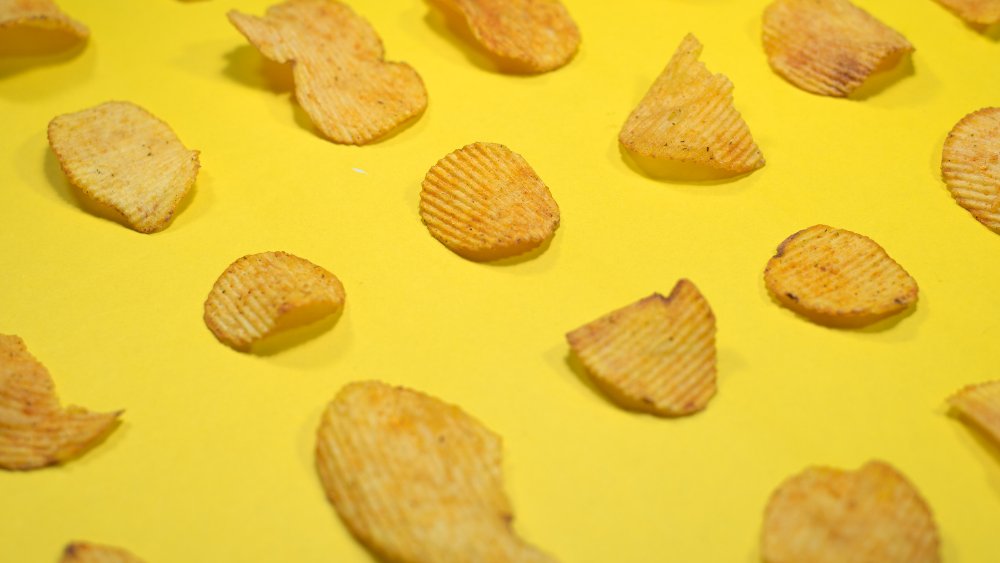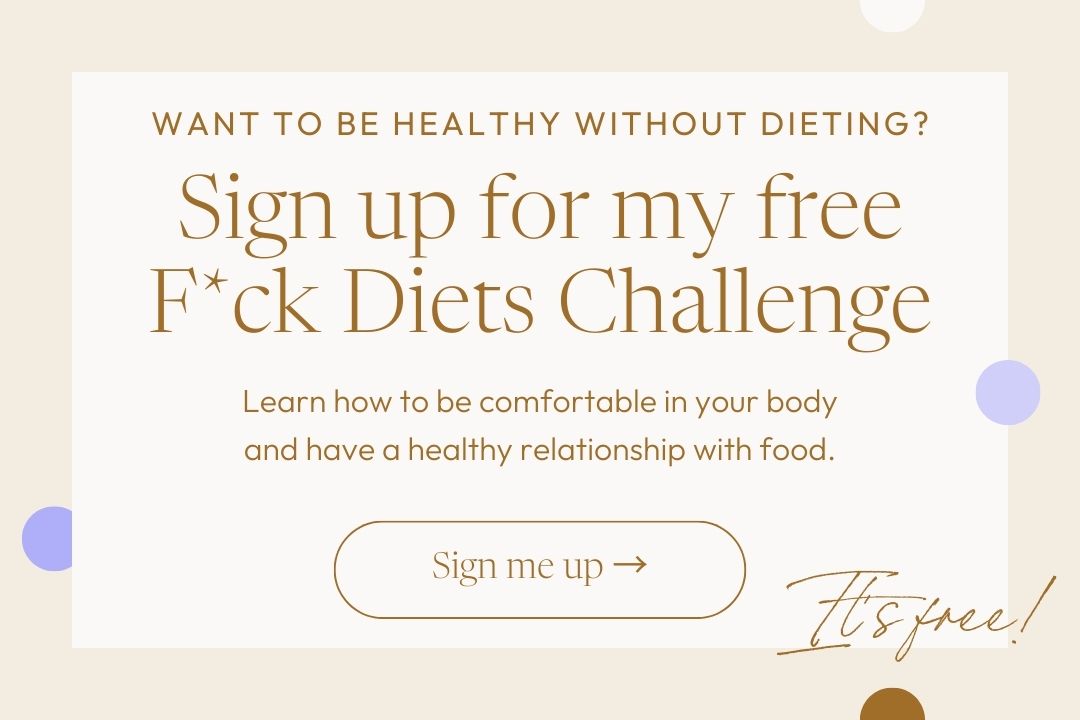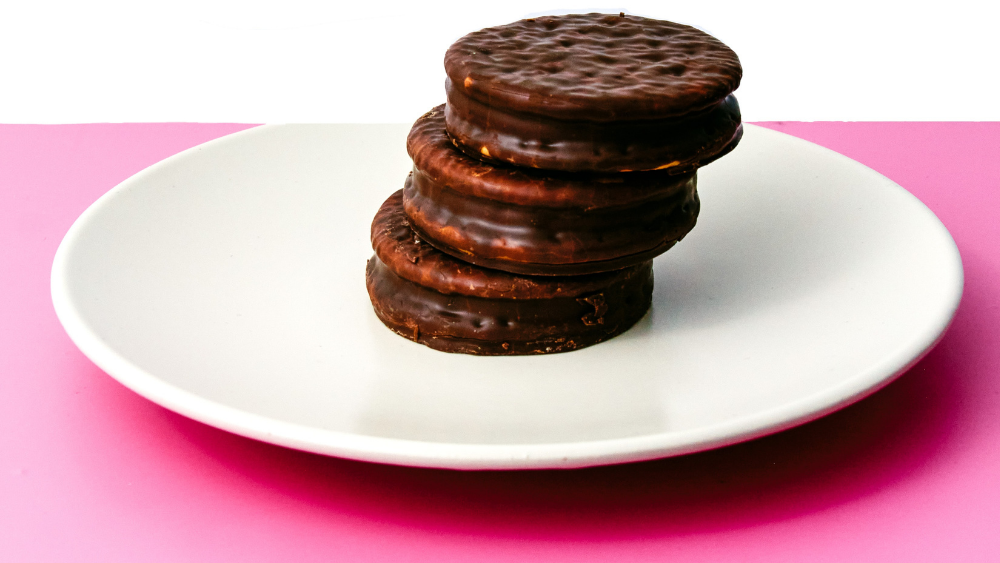I used to exercise portion control for weight loss. My learnings? You can’t build a meaningful life when you’re busy counting almonds. Here’s why portion control is more problematic than you might think.
23 almonds. 2 cheese slices. ½ cup pasta. 21 grapes. A virtuous way of eating, or a gazillion reasons to have an untrusting relationship with food?
Portion control for weight loss. It’s something we’ve been taught. A system that can help us eat correctly. A way to lose weight. A means for exercising willpower.
But the clue to it’s insidious inflicted misery is in the second half of the name. Control. Portion control creates shame and guilt about what we eat. It makes food a moral issue. It generates stress and takes up a lot of mental energy. How can you build a meaningful life when you’re busy counting almonds in the name of achieving the “correct” body?

As a dietitian, I don’t like meals plans and I don’t like portion control
Here’s why. Rather than tools for healthy eating, they’re part of diet culture and the pervasive way of thinking about body size that deifies thin bodies and sidelines anyone with a soft tummy, or thighs that touch. It assumes that eating in a certain way – for example – controlling your portions – will result in you achieving the “correct” body. That is, if you have the willpower to stick with it – and that’s where the guilt comes in.
Science lesson: Serving sizes are different from portion size – and that’s different from what your body actually needs. How could one ‘portion size’ be nutritionally appropriate for both a 6’5 bodybuilder and a 19-year-old teenage girl? They can’t.
Plus, serving size is dictated by food companies. If you’ve ever measured out an actual suggested serving of cereal or noticed that one chocolate bar supposedly contains 2.5 servings, you’ll know it’s simply an unhelpful suggestion.
I get it. Following rules is easy, in theory
It does the thinking and decision making for you. But eating according to your hunger is far more accurate than eating a set portion size.
The sole purpose of hunger is to help your body consume the right amount of energy for your body, not someone else’s. It’s not a punishment for being “bad”, or an indicator that you’re being “good.” That’s diet culture thinking messing with your brain.
And lots of things impact how much energy you need on any given day including how you slept and the weather.

Some days you burn more energy, other days less
Predicting how many calories you need isn’t nearly as accurate as tuning into your internal ‘energy calculator’ which is your hunger system. In other words, there’s no need for portion sizes or food rules. We simply need to tune back into what our bodies are trying to communicate.
Here’s the thing. When you are physically or emotionally hungry—and eat something that you’re truly hungry for—you will feel satisfied and content.
Think about this. What about when all you’ve wanted is two chocolate biscuits? But you’ve relegated them to the ‘bad’ food category. So you virtuously make yourself two Medjool dates with peanut butter instead. You eat them. But there’s still that chocolate biscuit niggle. So you go back to the fridge and grab some yoghurt. Oof. But those chilled biscuits look good. So you have a bliss ball. Just the one. Eventually, you eat the chocolate biscuits, too.
But by now you’ve had four different snacks and a whole lot of extra energy, than if you had the original craving in the first place.
When you eat something because you think you should, you end up feeling deprived and disappointed. Or with our chocolate biscuit analogy, you’re ashamed because you end up eating the thing you really wanted anyway.

Where there’s food restriction, there’s almost always a loss of control
It’s one of the many lessons I’ve learnt professionally as an accredited dietitian, and personally as a former binge eater. The lessons have inspired me to found my app Back to Basics and Binge Free Academy, an online program to end emotional and binge eating for good.
You see, I went on my first diet age 11 and was a dieting monogamous for pretty much a decade – faithful to deprivation and what I thought was self-control. It led to binge eating.
I’d been taught that my body size was a sign of a self-control problem and that I simply didn’t have the discipline to control my appetite. If I could just control myself, I’d start living the life I’m meant to. What actually helped that happen was finally quitting the command diets and food rules, like portion control, had on me, leaving toxic diet culture behind and pursuing actual health.
So next time you find yourself considering counting out those grapes, or macros, don’t. Use that energy for making, then counting happy memories, instead.
This story originally appeared on mamamia.com.au and is republished here with permission.